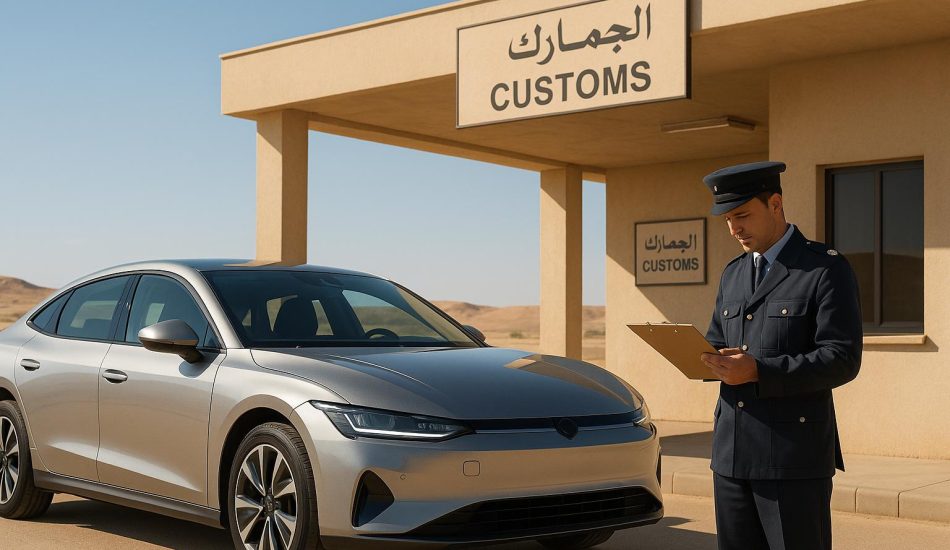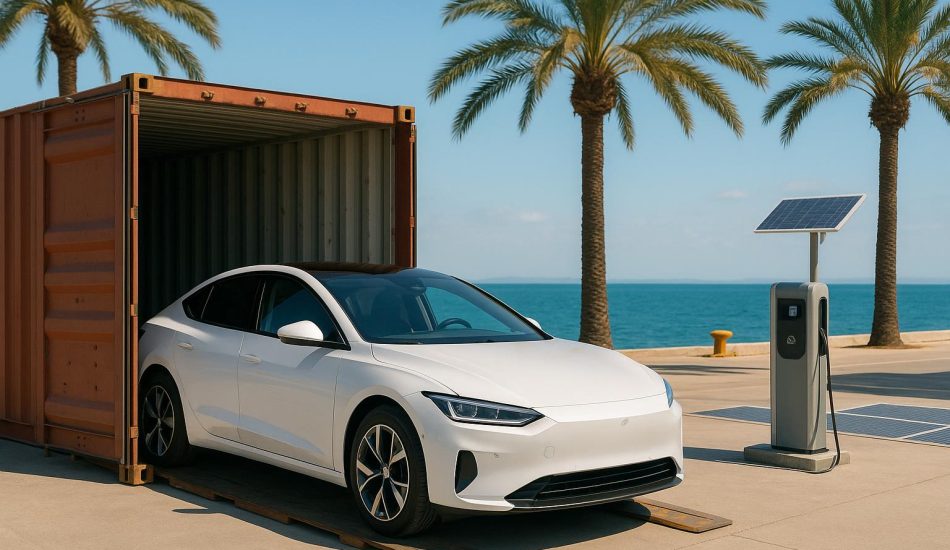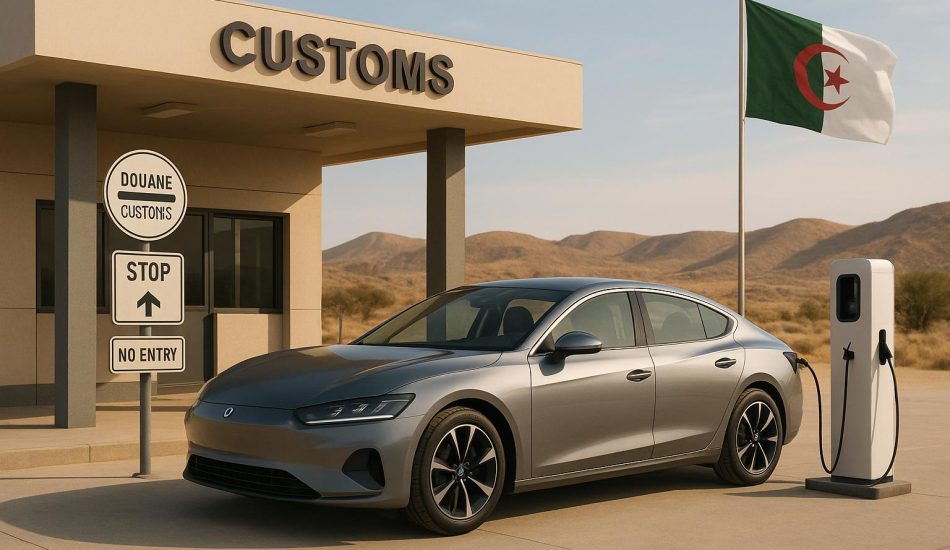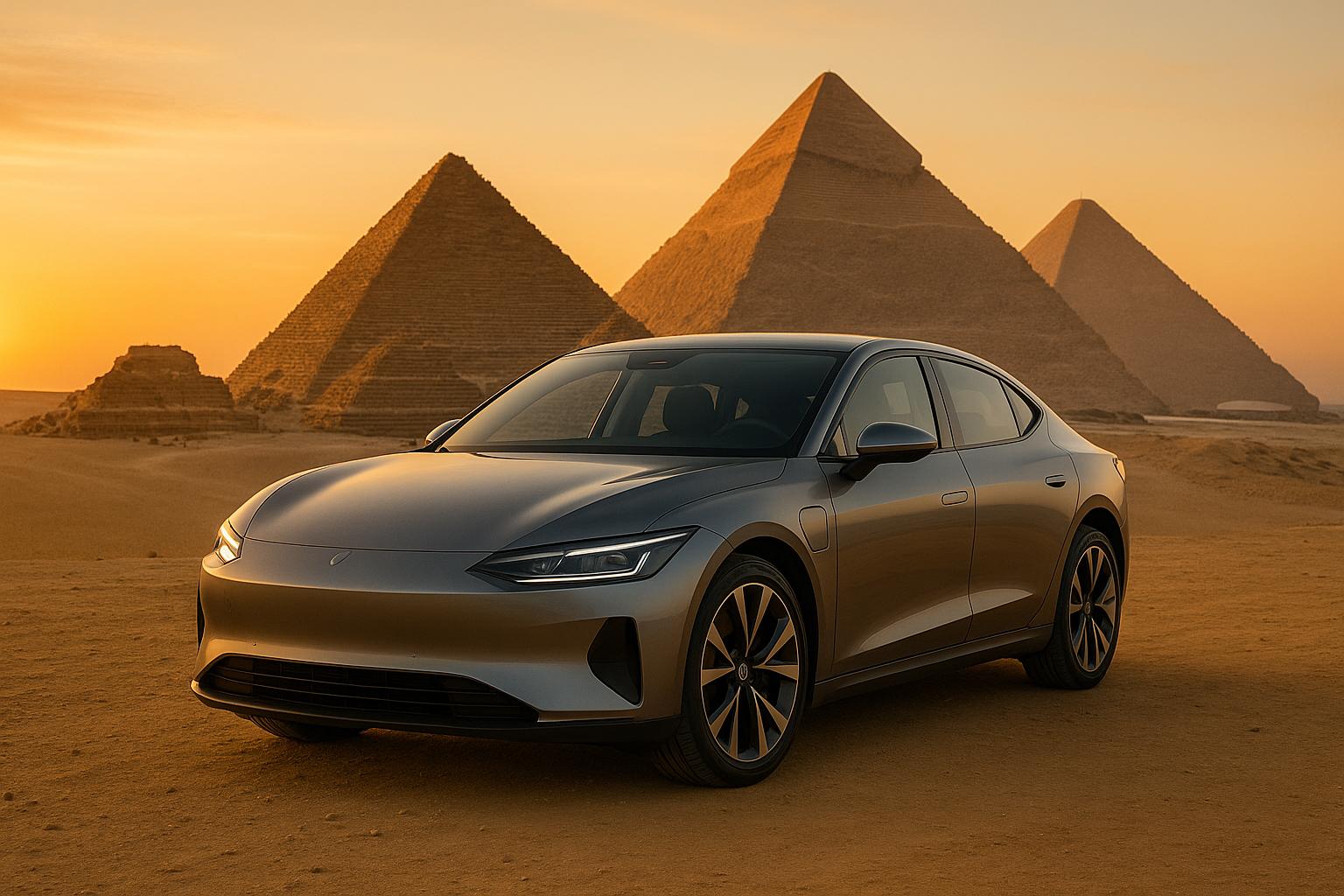
Starting January 1, 2025, Egypt is introducing new tax policies to encourage electric vehicle (EV) adoption. Key changes include 0% customs duties on EV imports, a progressive FOB value deduction of up to 50%, and relaxed rules allowing the import of EVs up to three years old. However, individuals can only import one EV every five years.
For Egyptian expatriates, a special duty-free program begins in 2025, requiring proof of foreign residency and financial solvency. Additional costs like 14% VAT, shipping fees, and registration expenses still apply.
These policies aim to make EVs more affordable, support Egypt’s clean energy goals, and expand EV infrastructure with 3,000 new charging stations. Platforms like EV24.africa simplify the process by offering compliant EV listings, financing options, and import assistance.
Ethiopia bans importation of non-electric private cars
EV Import Requirements and Rules
The updated tax policy introduces clear rules for importing electric vehicles (EVs). These guidelines outline who can import, the necessary documentation, and special provisions for specific groups. This framework aims to help buyers take advantage of the tax benefits mentioned earlier.
Who Can Import EVs Under the New Rules
The policy places strict limits on EV imports. Individuals are allowed to import just one electric vehicle every five years. This measure is designed to prevent misuse of customs exemptions and ensure fair access for genuine buyers.
When it comes to vehicle age, the rules for EVs are more relaxed compared to traditional cars. While new EVs are preferred, imports of electric vehicles up to three years old are permitted. Importers must also provide bank statements as proof of sufficient funds.
For Egyptian expatriates, a special program allows duty-free car imports for a four-month window starting in 2025. To qualify, participants must be Egyptian nationals aged 16 or older, hold valid foreign residency, and maintain a foreign bank account active for at least three months. Under this program, used cars manufactured in 2019 or later are eligible for import.
Documents Needed for EV Imports
Importing an EV requires specific paperwork. Key documents include:
- Import license issued by Egyptian authorities.
- Certificate of Conformity to verify technical and safety standards.
- Customs declaration forms and proof of payment made through authorized Egyptian banking channels.
Payments must go through approved banks to qualify for customs exemptions.
"The amendment specifies the conditions under which (U.S.) imported goods and products governed by the Agreement on Uniform Technical Specifications for Wheeled Vehicles, Equipment, and Components intended for use in such vehicles may be subject to visual inspection only." – Hassan El Khatib, Minister of Investment and Foreign Trade
Special Rules and Exceptions
In addition to the standard requirements, certain exceptions apply to specific groups.
Individuals with disabilities are eligible for customs exemptions under Law No. 10 of 2018. However, amendments introduced in 2025 impose new restrictions. For example:
- The engine capacity limit has been reduced from 1,600cc to 1,200cc.
- Financial verification now requires value transfers through beneficiary accounts.
- Recipients of government support programs like Takaful and Karama are no longer eligible for these exemptions.
- The vehicle must be operated by the beneficiary or a close relative.
For Egyptian expatriates using the duty-free program, an amount equivalent to the customs duties must be deposited in a government account for five years.
This updated framework seeks to balance EV adoption with proper oversight. Local dealers are optimistic, predicting over 10,000 electric vehicles on Egyptian roads within two years. This anticipated demand includes popular American brands like Tesla and Rivian.
Cost Changes and Market Effects of the 2025 Policy
Egypt’s 2025 tax policy is set to lower import costs and reshape the market for electric vehicle (EV) buyers.
How Much Money Will Buyers Save?
Starting January 1, 2025, customs exemptions will deliver significant cost reductions for EV buyers. Under the new policy, electric vehicles will receive a 10% deduction on their FOB (Free on Board) value, with an additional 10% deduction for each year since manufacture – capping at a maximum savings of 50% of the total FOB value. Unlike traditional vehicles, which are subject to customs duties, EVs will enjoy a 0% customs duty rate.
This change aligns with the rapid growth of Egypt’s EV sector, which saw a 39.5% increase in Q1 of 2025. The electric vehicle market is projected to generate $7.1 million in revenue for 2025. While these savings are a major incentive, buyers should also consider other fixed costs and market adjustments.
Other Costs to Plan For
Although customs exemptions offer substantial savings, buyers will still face additional expenses. Shipping fees for international imports depend on the vehicle’s origin and size. Additionally, a 14% Value Added Tax (VAT) applies to EV purchases, along with administrative costs for import documentation and vehicle registration.
The average price of an electric vehicle in Egypt for 2025 is estimated at $95,900. Buyers should also account for banking fees, as payments must go through authorized Egyptian banks to qualify for customs exemptions. Some banks may impose extra charges for processing international transactions, adding to the overall cost.
How This Will Change Egypt’s EV Market
These cost benefits are expected to significantly boost EV adoption in Egypt. Local dealers predict that more than 10,000 electric vehicles will be on Egyptian roads within two years. This aligns with the government’s renewable energy target of achieving 22% renewable energy usage by 2025, creating a favorable environment for EV growth.
The market is also becoming more diverse. By 2030, the electric vehicle sector in Egypt is projected to generate approximately $20.08 billion (EGP 1 trillion) in revenue, with an annual growth rate of 12.03%. This growth is attracting international manufacturers, increasing the variety of models available to Egyptian buyers. Chinese manufacturers, known for producing affordable EVs in emerging markets, are particularly well-positioned to benefit. Additionally, the government is exploring local EV assembly in partnership with Chinese firms, a move that could further reduce prices and improve accessibility.
The Port of Alexandria, the main entry point for vehicle imports, is expected to see increased activity as EV imports rise. This will not only support the growing market but also streamline the import process for buyers, making EV ownership more accessible across Egypt.
Step-by-Step Guide for EV Buyers
Navigating Egypt’s new EV import tax rules requires a bit of planning and attention to detail. Here’s how to make informed decisions and take full advantage of the changes coming in 2025.
How to Pick the Right EV Models
The first step in buying an EV is choosing a model that meets Egypt’s import guidelines. One key requirement is the vehicle’s age – used EVs must be under three years old from their manufacturing date. This age factor also impacts your tax savings, as Egypt offers a 10% deduction on the FOB (Free on Board) value for each year since the car was manufactured, up to a maximum of 50%.
Technical compliance is another critical factor. The EV must meet Egyptian safety and technical standards and adhere to environmental guidelines. Make sure the charging port is compatible with Egyptian infrastructure and that the vehicle comes with a user manual in either Arabic or English.
Stick with brands that have a solid reputation. Look for manufacturers with international certifications, valid export licenses, and a proven track record of delivering vehicles to Egypt.
How to Import an EV Under the New Rules
Once you’ve chosen a compliant EV, it’s time to tackle the import process. Egypt’s NAFEZA system is now mandatory for all vehicle shipments to ports like Alexandria, cutting processing times by about 40%. This system has made the process much smoother compared to previous years.
Proper documentation is essential. You’ll need an import license, a certificate of conformity, customs declaration forms, and proof of payment, such as bank statements. For shipping, sea freight is usually the most cost-effective option, while air freight may be worth considering for urgent deliveries. Since Alexandria is the main port for vehicle imports, don’t forget to include transportation costs from the port to your final destination in your budget.
Hiring experienced logistics partners and customs brokers can save you a lot of headaches. They can help you navigate the paperwork and avoid common mistakes. Additionally, securing transit insurance is a must to protect your EV during shipping.
Before shipping, confirm that your EV meets Egyptian standards for electrical systems. This includes checking voltage compatibility, safety certifications, and environmental compliance. Any issues discovered after arrival could lead to customs rejection or expensive modifications. Ensuring all requirements are met beforehand will save you time and money.
How to Avoid Scams and Buy Safely
With the import process sorted, protecting yourself from scams is just as important. The growing EV market has unfortunately attracted fraudsters. Always verify the credentials of the seller and request detailed photos and official documentation about the vehicle’s condition. Whenever possible, work with established dealerships or trusted platforms for added security.
For financial safety, consider using an escrow service to hold your funds until the EV has been delivered and inspected. Avoid cash payments or unsecured methods, as they offer little to no recourse if something goes wrong.
Do a reality check on pricing before finalizing any deal. If the offer seems too good to be true, it probably is. Research the average market price for the EV model you’re interested in to ensure the deal is legitimate.
A thorough inspection is non-negotiable. Whether you inspect the EV yourself or hire a professional, pay close attention to the battery’s condition, mileage, and any signs of damage.
Using secure payment methods like credit cards or bank transfers can provide added fraud protection. These methods often include dispute resolution features, which can help recover funds if there are any issues.
If anything about a deal feels off, walk away immediately. Being familiar with Egypt’s import regulations and the actual costs involved will help you spot unrealistic promises or misleading information about taxes, fees, or delivery timelines.
sbb-itb-99e19e3
How EV24.africa Makes EV Buying Easier in Egypt
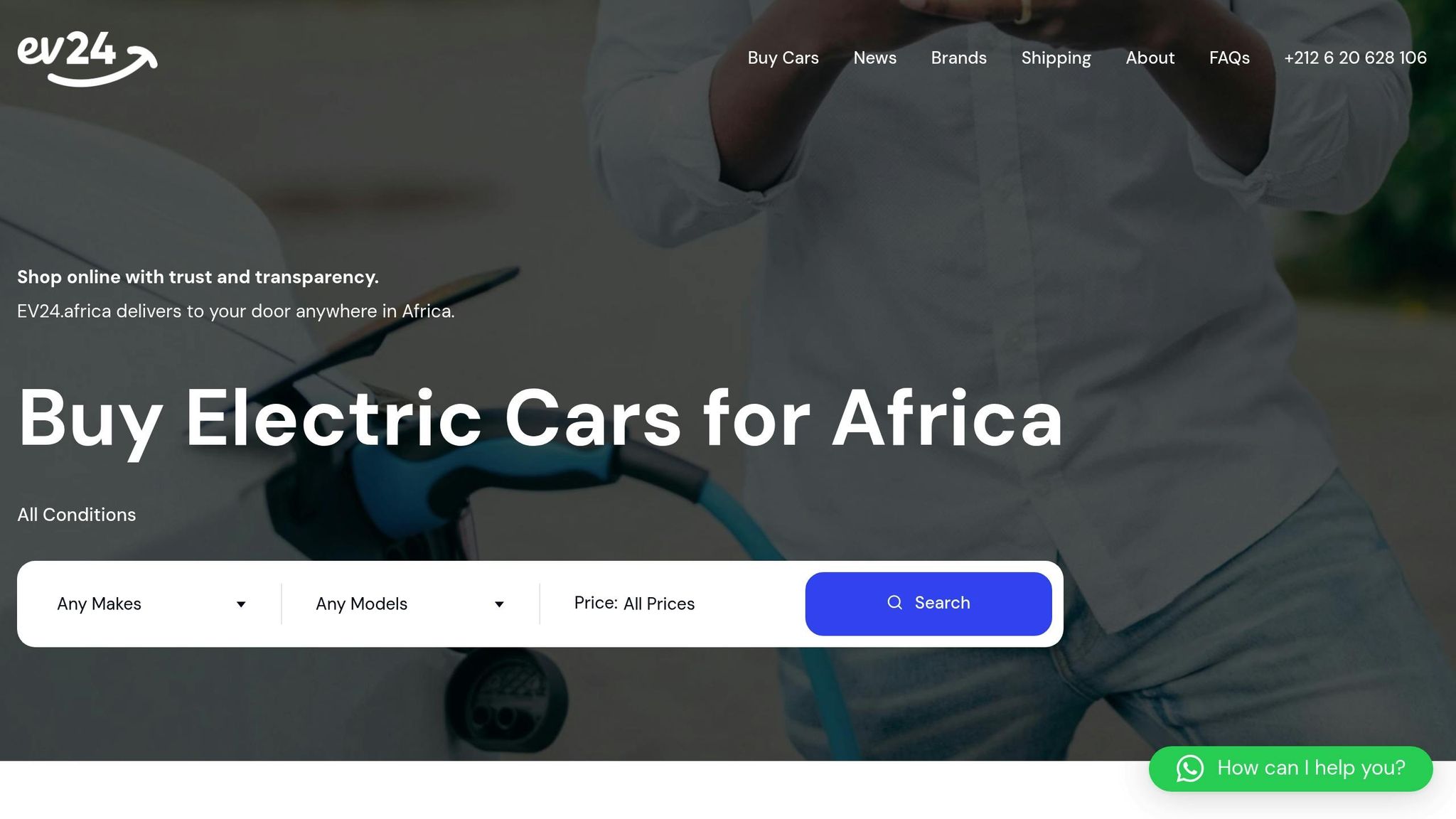
EV24.africa simplifies the process of purchasing electric vehicles (EVs) in Egypt, especially in light of the country’s 2025 import tax changes. The platform is designed to align seamlessly with Egypt’s updated import procedures, making it easier for buyers to navigate the system.
Finding and Comparing EVs on EV24.africa
The platform offers a curated selection of EVs, all pre-checked to meet Egypt’s updated import standards. This saves buyers the trouble of verifying compliance themselves.
Prices are listed in U.S. dollars, with popular models like the DONGFENG eπ 008 EV priced at $28,700 and the BYD QIN PLUS EV 100 Kw at $14,180. Buyers can use comparison tools to evaluate different models side by side, factoring in the base price, estimated import expenses, and potential tax benefits. Enhanced search filters allow users to refine their search by criteria such as manufacturing year, make, model, and compliance status. Models available on EV24.africa include well-known options like the Tesla Model 3, Rivian R1S, and Nissan Leaf, making comparisons straightforward.
Payment Plans and Delivery Through EV24.africa
To ease the financial burden of large upfront payments in foreign currency, EV24.africa collaborates with financial institutions to offer flexible payment plans and financing options in U.S. dollars. The platform also facilitates secure online payments and ensures compliant fund transfers, aligning with Egypt’s cost-saving measures to make EV ownership more accessible.
For delivery, EV24.africa operates a robust network centered on Egypt, primarily through the Port of Alexandria. Buyers can choose between door-to-door and port-to-port delivery options. By managing the entire import process under international commercial terms (Incoterms), the platform offers choices like Delivered Duty Paid (DDP) for a hassle-free experience or Free on Board (FOB) for those who prefer more involvement in shipping.
Getting Help with Import and Registration
EV24.africa also provides expert assistance with the necessary paperwork and registration processes. Their import specialists help prepare essential documentation, including proof of financial solvency, technical certifications, and battery compliance records. This support is especially crucial given Egypt’s stringent requirements for lithium-ion battery safety (UN38.3) and electrical standards.
After delivery, the platform connects buyers with local vehicle registration services, offers guidance on charging infrastructure, and helps locate maintenance providers. To ensure a secure buying experience, EV24.africa verifies all vehicle listings and sellers, provides secure payment gateways, and enforces strong buyer protection policies.
Additionally, the platform features a real-time cost calculator that highlights potential savings. For instance, buyers benefit from a base 10% tax reduction for EVs, along with an extra 10% deduction for each year since the vehicle’s manufacture.
"At EV24.africa, customer satisfaction is our top priority. We make importing and buying electric vehicles (EVs) easy, handling everything from sourcing to shipping and delivery in all 54 African countries."
Key Points for EV Buyers
Egypt’s 2025 EV import tax changes are set to bring exciting opportunities for buyers, offering substantial financial advantages and paving the way for a smoother transition to electric vehicles. Starting January 1, 2025, all electric vehicles will enjoy full customs exemptions, making EV ownership more accessible for many Egyptians .
Buyers will benefit from a 0% import duty and a progressive FOB (Free on Board) deduction of 10% per year post-manufacture, capped at 50%. Locally manufactured EVs come with additional perks – subsidies of up to EGP 50,000 for the first 100,000 units, provided the vehicle has a range of at least 248 miles (400 km) on a single charge .
These measures align with Egypt’s renewable energy goals while boosting the EV market’s growth .
To take advantage of these incentives, buyers must adhere to specific guidelines. These include importing only one vehicle every five years, conducting transactions exclusively through Egyptian banks with proper documentation, and using the NAFEZA system, which reduces processing times by 40% . This streamlined framework simplifies the process for buyers.
EV24.africa plays a pivotal role in supporting buyers. The platform pre-verifies vehicles to ensure compliance with regulations and lists prices in U.S. dollars, making the purchasing process transparent and straightforward.
"EV24.africa is here to make this transition easier by offering a transparent and competitive platform. Electric vehicles are not only an environmentally conscious choice but also a smart economic decision, thanks to lower fuel and maintenance costs."
– Axel Peyriere, CEO of AUTO24.africa
The platform goes beyond vehicle selection, assisting buyers with customs clearance, registration, and even connecting them to local charging networks and maintenance providers. With these benefits and robust government support, 2025 is shaping up to be the ideal moment for Egyptian buyers to embrace electric vehicles, combining cost savings with environmental responsibility.
FAQs
What steps do I need to follow to import an electric vehicle into Egypt under the 2025 tax changes?
How to Import an Electric Vehicle (EV) into Egypt Under 2025 Tax Policies
Starting January 1, 2025, new tax policies in Egypt will introduce exemptions and reduced customs duties for certain electric vehicles (EVs). To ensure a smooth import process, follow these steps:
First, confirm whether your EV qualifies for the updated exemptions. These could include reduced or even waived customs duties, depending on the vehicle’s specifications and compliance with Egyptian standards.
Next, gather all the necessary documents. This includes proof of ownership, vehicle specifications, and evidence that the EV meets Egypt’s regulatory requirements. Once your documentation is complete, submit your import declaration through NAFEZA, Egypt’s digital customs platform for imports.
If your EV doesn’t meet the criteria for exemptions, be prepared to pay customs duties, which will be calculated based on the updated reduced rates.
By staying informed and preparing all required paperwork, you can navigate the updated tax rules efficiently and make the import process as seamless as possible.
How will Egypt’s 2025 EV import tax changes affect the total cost of owning an electric vehicle, including VAT and shipping fees?
Egypt’s 2025 EV Import Tax Changes
Starting in 2025, Egypt’s new tax policies are set to increase the cost of owning an electric vehicle (EV). Here’s how the numbers break down:
- Customs duties will make up about 30% of the car’s value.
- Value-added tax (VAT) has been set at 14%.
- Shipping costs will also be taxed, with a 5% customs duty and a 10% VAT applied to the CIF (cost, insurance, and freight) value.
These combined fees and taxes are expected to significantly raise the overall cost of EVs. For many buyers, this could make electric vehicles a less accessible option. If you’re considering purchasing an EV, it’s important to factor in these added costs when budgeting.
What are the pros and cons of the duty-free program for Egyptian expatriates importing electric vehicles in 2025?
The 2025 duty-free program for Egyptian expatriates opens the door to importing electric vehicles (EVs) without customs duties, offering major cost savings. This initiative aims to boost EV imports into Egypt but is only available during a four-month window.
That said, there are a few restrictions to keep in mind. First, vehicles must be shipped within the specified period, which could pose logistical hurdles. Additionally, participants need to agree to re-export the vehicle to retain the duty-free benefits. These conditions make the program a better fit for short-term use rather than long-term ownership plans.


